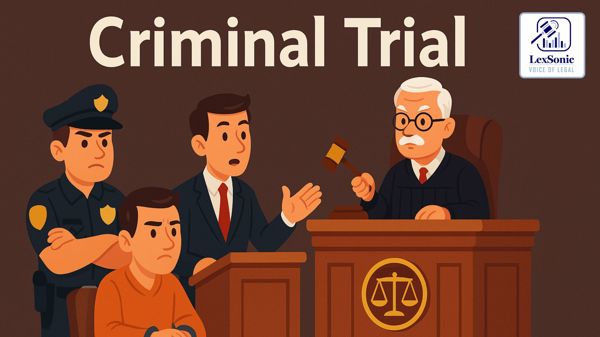Apex Court Upholds Trial Court's Power to Summon Additional Accused Based on Trial Evidence.
01 April 2025
Criminal Appeals & Suspension of Sentence >> Criminal Law | Criminal Trial >> Criminal Law
In a significant ruling of Satbir Singh v/s Rajesh Kumar & Others., concerning the summoning of additional accused during a criminal trial, the Supreme Court of India has overturned a judgment of the High Court of Punjab and Haryana at Chandigarh. The apex court's decision reinstates an order passed by the Additional Sessions Judge, Karnal, who had allowed an application under Section 319 of the Code of Criminal Procedure, 1973 (Cr. PC) to summon Rajesh Kumar and Neeraj as additional accused in an assault case.
The case originates from a Special Leave Petition filed by Satbir Singh, challenging the High Court's order dated March 7, 2024. The High Court had set aside the Sessions Judge's order dated September 13, 2021, which had allowed Satbir Singh's application to summon Rajesh Kumar, Sagar Bittoo, Niraj, and Ankit to face trial along with the principal accused, Mukesh, for offences including attempted murder, assault, and criminal intimidation under the Indian Penal Code, 1860 (IPC) and the Arms Act.

Initially, the Supreme Court had issued notice on the special leave petition limited to Rajesh Kumar and Neeraj, dismissing the petition against Sagar Bittoo and Ankit.
The factual background of the case involves an incident on February 9, 2020, where Satbir Singh and Mukesh sustained injuries during an altercation that followed a volleyball match. Based on Mukesh's initial statement, a First Information Report (FIR) was registered, but the police later submitted a closure report, finding no substantiation in Mukesh's allegations against Satbir Singh.
Subsequently, Satbir Singh provided his account, stating that after a verbal exchange with Mukesh during the volleyball game, Mukesh returned with a knife, accompanied by Neeraj, Sagar Bittoo, and Ankit armed with blunt weapons. Satbir Singh alleged that Neeraj held him while Mukesh inflicted knife wounds, and Sagar and Ankit assaulted him with lathi and danda. He further accused Rajesh of threatening him. Medical reports confirmed that Satbir Singh sustained injuries caused by sharp weapons, with one chest injury being classified as dangerous to life. Consequently, a cross-case was registered against Mukesh, Rajesh, Neeraj, Sagar Bittoo, and Ankit.
However, during the investigation, the involvement of Rajesh and Ankit was not found by the Investigating Officer and was reportedly verified by senior police officials through subsequent enquiries. Following the investigation, a charge sheet was filed against Mukesh alone.
During the trial, Satbir Singh (PW-1) reiterated his allegations against all five individuals and filed an application under Section 319 Cr. PC to summon Rajesh, Neeraj, Sagar Bittoo, and Ankit as additional accused. The Sessions Judge allowed this application, leading to the revision petition before the High Court, which was subsequently allowed, setting aside the Sessions Judge's order.
The Supreme Court, after hearing the arguments from both sides and perusing the records, referred to the Constitution Bench decision in Hardeep Singh v. State of Punjab ((2014) 3 SCC 92) and the recent judgment in Jitendra Nath Mishra v. State of Uttar Pradesh & Another ((2023) 7 SCC 344), which laid down the principles governing the summoning of additional accused under Section 319 Cr. PC.
The apex court observed that while the High Court has the power of revision, it appeared to have misapplied the settled legal principles. The court noted that the Sessions Judge had formed the requisite satisfaction, considering Satbir Singh's examination-in-chief, that there was evidence suggesting the involvement of Rajesh and Neeraj, warranting their summoning to face trial.
The Supreme Court disagreed with the High Court's reliance on the police investigation reports that did not find the involvement of Rajesh and Neeraj. The apex court opined that these reports alone could not be conclusive proof of their non-involvement and that the evidence presented during the trial, specifically the appellant's testimony, needed to be given due consideration.
The court stated that the Sessions Judge's conclusion to summon Rajesh and Neeraj was a plausible one, based on the evidence presented, and did not warrant interference by the High Court in its revisional jurisdiction.
Consequently, the Supreme Court set aside the High Court's order and restored the order of the Sessions Judge. The appeal was accordingly allowed.
The Supreme Court clarified that its observations should not be construed as an expression of opinion on the actual involvement of Rajesh and Neeraj in the crime, and the trial court was encouraged to conclude the trial expeditiously in accordance with the law.
Section 319., Code of Criminal Procedure - 1973
Code of Criminal Procedure, 1973
